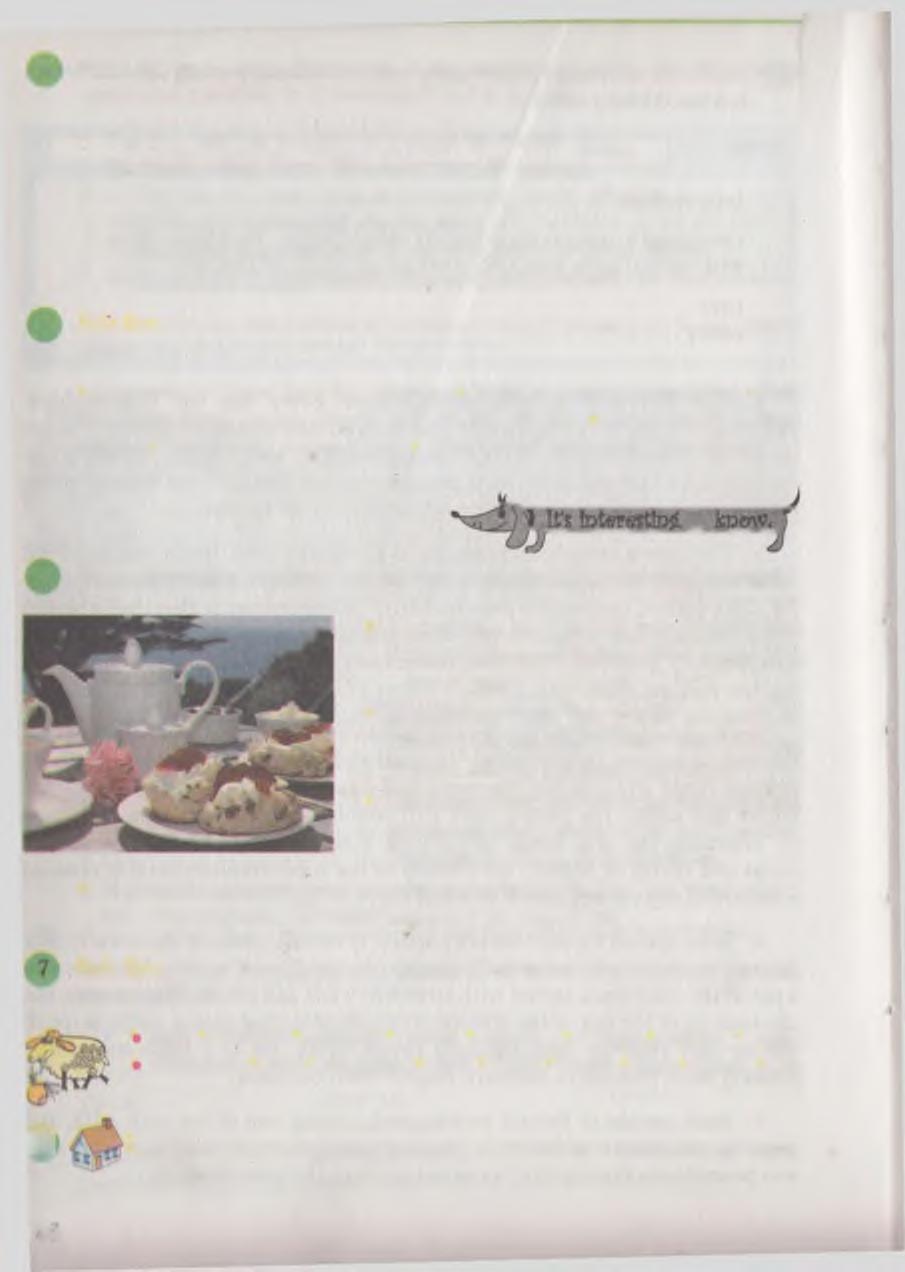
7 minute read
STOP AND CHECK
• It is OK. to pour your own drink when eating with o th e r people. B u t i t is more 1 polite to o ffe r pouring drinks to th e people s ittin g on either side o f you. • It Is OK to p u t milk and sugar In your te a and coffee or to drink them both w ith o u t either, • If you've accidentally taken to o much food and you cannot possibly e a t it all, say: “I'm sorry, b u t it seems t h a t my eyes are bigger th a n my stom ach.” ® or “I’m sorry. It was so delicious b u t I am full up.” The main thing is n o t §| t o offend your host.
6 Work m pairs Discuss British eating etiquette.
1. — Can I ea t chicken a n d pizza with m y fin g e rs a t a barbecue? — Yes, o f course. I t ’s OK. 2. — Is it O K to start eating before everyone has been served? — I ’m afraid, i t ’s not a good idea. I t m ay look impolite.
7 Work m groups. Discuss th e following questions. 1. Do you follow the same rules in U kraine? 2. W hen do you use a knife? 3. W hen do you use a fork? 4. W hen do you use a spoon? 5. Are there other table 'rules in U kraine which are not m entioned in
Jenny’s story?
8 Comparison. Find out and discuss what is the same and what is different about
eating etiquette in Ukraine and Great Britain.

9 Work in pairs Use the menu (ex. 1, p. 139) and make up a dialogue between
the customer and the waiter / waitress in the pub. Act out the dialogue in the class.
Example — W hat would you like? — I ’d like a chicken a n d bacon club sandwich first. — Very well. A n d w hat w ould yo u like f o r y o u r main course? — Could I have...?
10 l.y-jjj' Give Jenny advice about eating etiquette in Ukraine.
C U L T U R E H I G H L I G H T S : W H Y D O T H E B R I T I S H L I K E D R I N K I N G T E A ?
A cup of tea” is a British tradition and evetylhin^ ' stops {or "tea”. "Po you enjoy drinkînq tea?
1 Look at the picture and answer the questions.

1. Is tea drinking popular nowadays? W hy? 2. How often do people usually drink tea? 3. Has tea drinking become a tradition nowadays?

2 Work in groups Read these words and use them in your own sentences.
advertisem ent china teapot to stop for tea wage tea-drinking nation to cost tea-caddies social ritual to guard couple tea gardens to blossom cream cream tea to stroll custom clotted cream to establish scones substantial meal to crack porcelain social event to pour
3 Work in q roups Read Jenny’s story from her website and say why the British
is a tea-drinking nation.
From: Jenny
Dear Nastya, I promised to tell you about tea drinking in Britain. Here is my story. What do you know about tea-drinking traditions in Ukraine? Love, Jenny

1. The British is a tea-drinking nation. Every day th e British drink 165 million cups of tea and each year around 144 thousand tons of tea are im ported. Everything in Britain, says a popular song, “stops for te a”. I t’s certainly true th a t tea is the most popular drink in B ritain — far more popular th an coffee, which is favoured throughout the rest of Europe. 2 . The D utch brought the first tea to Europe in 1610. But it was not until 1658 th a t the first advertisem ent for tea appeared in a London newspaper. By 1750, tea had become the principal drink in Britain, yet at th a t tim e a pound of the cheapest tea cost about one-third of a skilled w orker’s weekly wage! Tea was jealously guarded by the lady of th e house, and kept in special containers call tea-caddies, often w ith a lock. 3 . Gradually, tea drinking developed into a fashionable social ritual» and tea gardens blossomed in places like Vauxhall and M arylebone in London. There couples could stroll in the afternoon and enjoy a cup of tea w ith bread and b u tte r and cakes. Tea parties were also popular at home and soon th e ritual of “afternoon te a” was firmly established. Today, throughout the homes, tea- shops and hotels of Britain, the custom of tea tim e continues, and it remains a feature of any cricket match or social event. 4 . Some special kinds of tea are popular in definite parts of the country. For example, a cream tea is especially popular in the W est Country. It consists of a pot of tea and scones served w ith straw berry jam and cream. The cream is not the same as in the rest of the country. It is called clotted cream, and it is much thicker and yellower than ordinary cream. High Tea is a more substantial evening meal, popular in northern England and Scotland. 5 . M ost people in Britain prefer a rich, strong cup of tea w ith milk, and sugar is sometimes added to taste. Interesting fact — years ago, the milk was poured into th e cup first, so as not to crack the porcelain.

4 Read the true / false statements. If the statement is false, give the correct statement according to Jenny’s story (ex. 3, p. 145).
1. The first tea was brought to Europe by French. 2. Tea became popular in B ritain in the 20th century. 3. At first tea was very cheap and everybody could afford it. 4. High Tea is a substantial evening meal. 5. People drink the same kind of tea in all parts of G reat Britain. 6. Tea in B ritain is traditionally made in a china teapot.
5 Quiz.time. Put the items about the traditional way of making tea in the correct order.
• Leave tea to “brew” for a few minutes. • Relax and enjoy a cup of tea. • Add one spoonful of tea per person and one for the pot. • Brew tea in a china teapot. • Use freshly boiled water. • Pour boiled w ater onto the leaves.
to
0 Read some facts about tea and tell about your family tea-drinking traditions.

Quiz time. Read the words and choose 4 of them which ca nn o t go with the word tea. ♦ If someone asks you if you “would like a cuppa”, they are asking if you would like a cup of tea. ♦ If someone says “let me be m other” or “shall I be m o ther”, they are offering to pour but the tea from the teapot. ♦ Tea break, High tea, tea time, tea party, tea towel and many more term s have derived from the tradition of drinking tea. ♦ If som ething is not quite to your taste, it’s probably “not your cup of tea”. For example: “W indsurfing is not my cup of te a”.

rich • yellow • strong • weak • special • w hite • cream • high afternoon • low • cheapest • first • herb • black • last • green • ice









